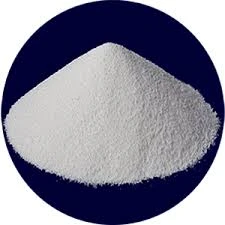- Afrikaans
- Albanian
- Amharic
- Arabic
- Armenian
- Azerbaijani
- Basque
- Belarusian
- Bengali
- Bosnian
- Bulgarian
- Catalan
- Cebuano
- Corsican
- Croatian
- Czech
- Danish
- Dutch
- English
- Esperanto
- Estonian
- Finnish
- French
- Frisian
- Galician
- Georgian
- German
- Greek
- Gujarati
- Haitian Creole
- hausa
- hawaiian
- Hebrew
- Hindi
- Miao
- Hungarian
- Icelandic
- igbo
- Indonesian
- irish
- Italian
- Japanese
- Javanese
- Kannada
- kazakh
- Khmer
- Rwandese
- Korean
- Kurdish
- Kyrgyz
- Lao
- Latin
- Latvian
- Lithuanian
- Luxembourgish
- Macedonian
- Malgashi
- Malay
- Malayalam
- Maltese
- Maori
- Marathi
- Mongolian
- Myanmar
- Nepali
- Norwegian
- Norwegian
- Occitan
- Pashto
- Persian
- Polish
- Portuguese
- Punjabi
- Romanian
- Russian
- Samoan
- Scottish Gaelic
- Serbian
- Sesotho
- Shona
- Sindhi
- Sinhala
- Slovak
- Slovenian
- Somali
- Spanish
- Sundanese
- Swahili
- Swedish
- Tagalog
- Tajik
- Tamil
- Tatar
- Telugu
- Thai
- Turkish
- Turkmen
- Ukrainian
- Urdu
- Uighur
- Uzbek
- Vietnamese
- Welsh
- Bantu
- Yiddish
- Yoruba
- Zulu
Nov . 10, 2024 04:30 Back to list
Gentamicin Sulfate Treatment Options for Equine Health and Infection Control
Gentamicin Sulfate for Horses A Comprehensive Overview
Gentamicin sulfate is an antibiotic commonly used in veterinary medicine, particularly for treating bacterial infections in horses. This aminoglycoside antibiotic is effective against various types of gram-negative bacteria, making it a crucial tool in equine care. Understanding its applications, benefits, dosage, and potential side effects is essential for horse owners and veterinarians alike.
Applications in Equine Medicine
Gentamicin sulfate is primarily indicated for treating infections caused by susceptible bacteria, particularly those affecting the respiratory and urinary tracts, skin, and soft tissues. It can be used for conditions such as pneumonia, urinary tract infections, and wound infections. The ability of gentamicin to penetrate bacterial cell walls makes it effective in combating infections that may not respond to other antibiotics, particularly in severe cases.
In addition to treating existing infections, gentamicin sulfate is sometimes utilized in surgical procedures to prevent potential complications. Its strength in combating infections makes it valuable in perioperative treatments, where the risk of postoperative infections is high. However, it is essential to use gentamicin judiciously to avoid antibiotic resistance, which is a growing concern in both human and veterinary medicine.
Benefits of Gentamicin Sulfate
One of the primary benefits of gentamicin sulfate is its rapid action against serious bacterial infections. When administered appropriately, it can lead to significant improvements in the health of affected horses. Furthermore, it is reasonably well-tolerated, with most horses exhibiting few adverse reactions when the drug is used as directed.
Another advantage of gentamicin is its ability to be administered through various routes, including intramuscular and intravenous injections. This versatility allows veterinarians to choose the most effective method for each specific case, ensuring that the medication reaches the bloodstream quickly and works efficiently.
gentamicin sulfate for horses

Dosage and Administration
Proper dosage and administration of gentamicin sulfate are vital to its effectiveness and safety. The standard dosage for horses typically ranges from 2.2 to 4.4 mg per kg of body weight, administered every 24 hours. However, the exact dosage may vary depending on the severity of the infection, the horse's overall health, and the veterinarian's recommendations.
Gentamicin sulfate may be administered for a short duration, usually between 5 to 7 days, but this can be adjusted based on the horse's response to treatment. Regular monitoring by a veterinarian during the treatment period is essential to assess for signs of improvement and to make any necessary adjustments to the treatment plan.
Potential Side Effects
While gentamicin sulfate is relatively safe, it is not without potential side effects. The most significant concern is nephrotoxicity, which can occur if the drug is administered inappropriately or for extended periods. Kidney function should be monitored during treatment, especially in horses with pre-existing kidney issues or those receiving other medications that may affect renal function.
Other potential side effects include gastrointestinal disturbances and injection site reactions. It is crucial to follow the veterinarian's protocol precisely to minimize these risks. Additionally, any concerning symptoms, such as decreased appetite or lethargy, should be reported to a veterinarian immediately.
Conclusion
Gentamicin sulfate is a powerful antibiotic that plays an essential role in equine medicine. Its effectiveness against a wide range of bacterial infections makes it a valuable asset in maintaining the health and well-being of horses. However, responsible usage and veterinary oversight are paramount to avoid adverse effects and the development of antibiotic resistance. Horse owners should always consult with a qualified veterinarian before administering gentamicin sulfate to ensure safe and effective treatment for their equine companions.
-
Guide to Oxytetracycline Injection
NewsMar.27,2025
-
Guide to Colistin Sulphate
NewsMar.27,2025
-
Gentamicin Sulfate: Uses, Price, And Key Information
NewsMar.27,2025
-
Enrofloxacin Injection: Uses, Price, And Supplier Information
NewsMar.27,2025
-
Dexamethasone Sodium Phosphate Injection: Uses, Price, And Key Information
NewsMar.27,2025
-
Albendazole Tablet: Uses, Dosage, Cost, And Key Information
NewsMar.27,2025













